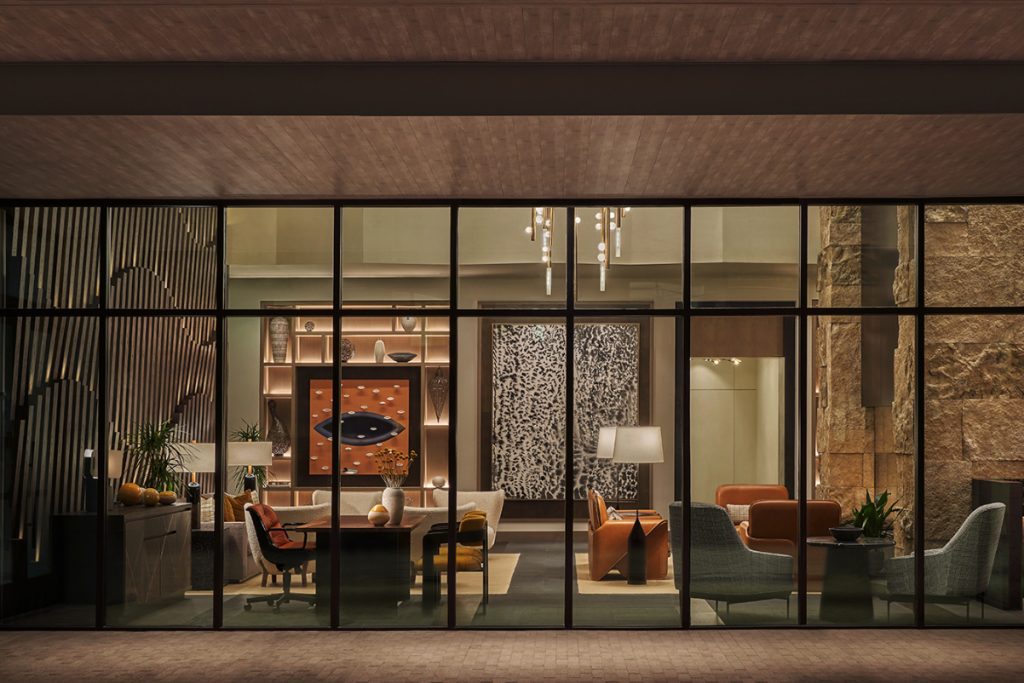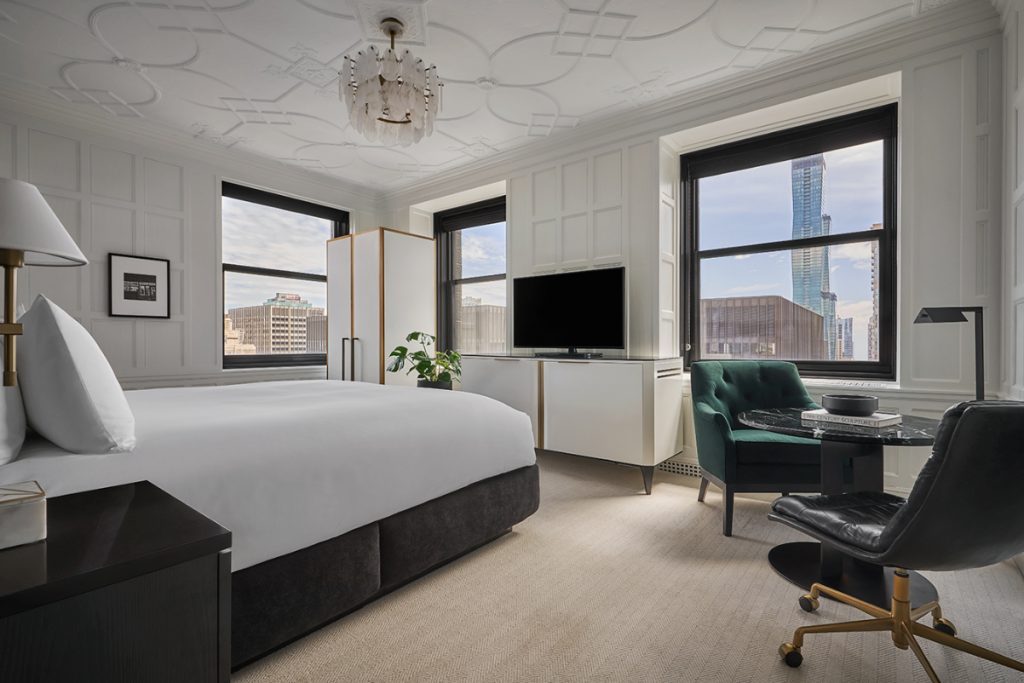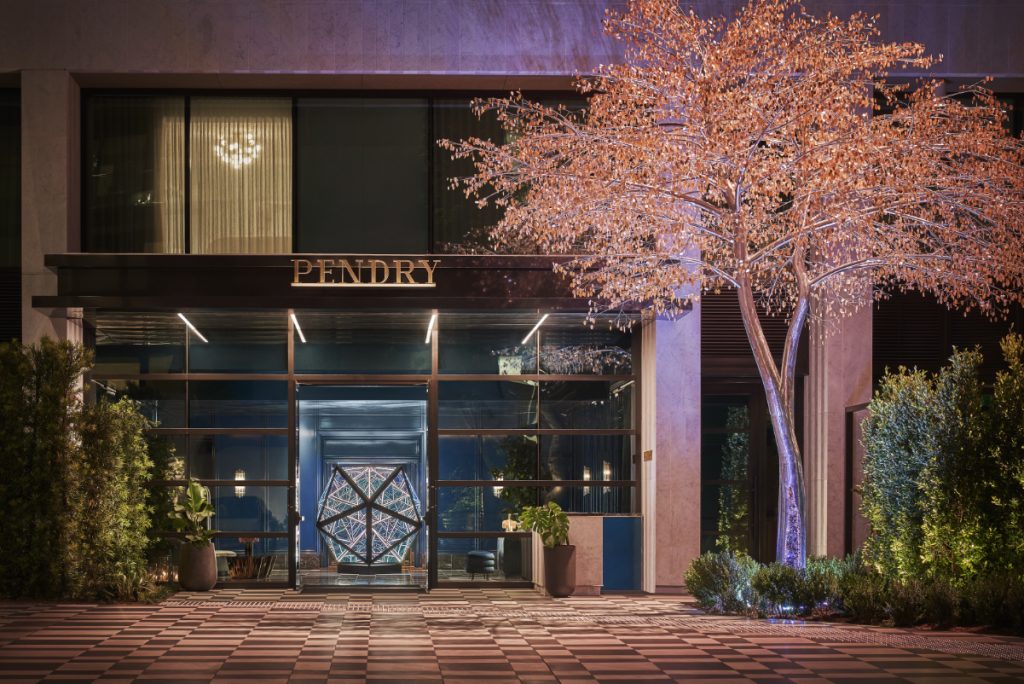Alan Fuerstman had a broad smile on Wednesday as he toured Pendry’s Washington, DC – The Wharf, which is scheduled to open later this month. He spoke with workers amid their efforts to quickly install the finishing touches on the luxury lifestyle hotel.
Montage International’s CEO said worrying about the details was critical to maintaining his hotel management company’s long-term bets on Pendry Hotels, a lifestyle brand, and Montage Hotels and Resorts, its “ultra-luxury” brand.
Pendry DC is Montage International’s 14th property. Some industry observers would say it’s a slow pace of growth for Montage International, which Fuerstman founded two decades ago.
Private enterprise has been accelerating its rate of growth. Next year, Pendry La Quinta, Montage La Quinta and Pendry Newport Beach are scheduled to open in California, and in New Jersey, Pendry Natirar will open. In 2024 it plans to open Pendry Tampa and Montage Cay (in the Bahamas). In the works is another project soon to be revealed in the Caribbean and perhaps “two or three more international properties” to be announced within the next year. The company does not disclose financials.
However, Montage International’s pace of growth remains relatively slow in the context of industry pressure to expand portfolios rapidly because of the marketing benefits of scale.
“We are disciplined about measured growth as a way to create long-term value,” Fuerstman said. “For us, success is less about scaling up to a magical number of properties and more about being hyper-focused on delivering consistent quality.”
Contrary growth strategy
Montage International has created blank spaces in the shadow of giant competitors like Marriott and Hilton by providing a trusted experience across properties, the CEO said.
“Some competing brands provide disparate experiences as you move from one property to another,” said Fuerstman.
The best way to drive high repeat customer rates is to stick unflinchingly to brand standards, he argued. However, the big competitors often have gargantuan loyalty programs and well-capitalized marketing funnels to drive direct bookings that a player like Montage lacks.
“If you focus on quality, you don’t have to worry as much about distribution,” said Michael Fuerstman, co-founder and creative director of Pendry Hotels, who was also at the DC property helping with the launch. He is also Alan’s son. “Specifically in the luxury and ultra-luxury segments, we are able to have more personal relationships with our guests than large-scale companies. That drives repeat business.”
 An exterior view of the lobby seating area at Pendry Park City. Source: International Assembly.
An exterior view of the lobby seating area at Pendry Park City. Source: International Assembly.
selective in locations
Another key to competitiveness is serving only destinations with high demand for luxury, said Alan Fuerstman. Montage has had to “miss a lot of opportunities” because potential hotel locations “didn’t make sense.”
“Very often, public hotel companies are forced to grow by sometimes compromising where a brand is placed,” Fuerstman said.
“If you put an ultra-luxury hotel in a market where you can’t get rates high enough, one of two things happens,” Fuerstman said. “You have a disappointed owner because you are not providing the returns that you should. Or you compromise service quality because you can’t afford the labor and cost per room to provide the right level of service.”
Fuerstman insists that his management contracts include capital reserves at each hotel to maintain brand standards regardless of market cycles.
 A suite at Pendry Chicago. Source: Montage International
A suite at Pendry Chicago. Source: Montage International
Brand residencies are a key ingredient
One of the real estate categories that emerged during the pandemic with no signs of abating has been branded residential offerings. Some of the demand has been driven by foreign investors looking for a stable asset in exchange for cash or as a kind of trophy for social status and buzz.
All of Montage’s hotels have, and about half of Pendry’s properties have, a residential component, such as single-family homes, condominiums, or villas.
“Residential is a big part of what makes the economy tick as we develop new hotels,” Fuerstman said.
Earlier this year, one of the 40 residences in Pendry West Hollywood sold for $21.5 million, or about $3,400 per square foot, and the buyer will buy a second. Last year, a unit sold for about $4,800 per square foot, which according to the Los Angeles Times was the highest price per square foot for condo sales in Los Angeles. That said, almost half of the units remain unsold.
 Exterior view of the lobby of the Pendry West Hollywood Hotel. Source: International Assembly.
Exterior view of the lobby of the Pendry West Hollywood Hotel. Source: International Assembly.
Capital Partners
While the short-term economic outlook is uncertain, luxury may be a resilient sector in the long run, according to Montage’s chief executive officer.
“Smart investors understand that luxury produces the best returns,” Fuerstman said. “If you look at some of our asset sales, with Montage Healdsburg at over $2 million per key or the price of Beverly Hills and when Laguna negotiated.”
“The record price we’re getting is proof that if you protect a great brand and consistently reinvest in the physical aspect of it, you’ll get the economics you’re looking for as a real estate investor.” Furstman said.
focus on the details
During a preliminary tour of Pendry DC, furniture was still being installed in the lobby, a rooftop bar, and a spa. Staff training had begun, with a 20-year company veteran helping to oversee instruction.
“In every Pendry, we want touchpoints for guests to experience, even if the aesthetics or properties of a physique may differ,” said Michael Fuerstman.
Foyers always have a great piece of light or space based art in or near the foyer. Staff offer guests an arrival drink that guests can “spike” with a secret alcoholic ingredient by quoting the password for the day at the hotel bar. In another signature touch, every room typically receives a macaroon as a turn-down gift.
In Pendry DC, the workshops shared the company’s instructions on its philosophy, called “know thyself,” which helps encourage staff to act as if they were hosts in their own homes, welcoming guests.
“The original lifestyle brands were less about service and more about creating a scene,” said Alan Fuerstman. “We saw a gap in the market that Pendry could fill by marrying a culture of extraordinary service and still retain the energy, vibrancy, arts and nightlife of the lifestyle.”
Source: news.google.com